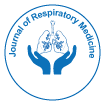The Role of Caffeine and Doxapram for Respiratory Care in Preterm Infants: A Clinical Review
Received Date: Jan 22, 2018 / Accepted Date: Jan 25, 2018 / Published Date: Feb 01, 2018
Abstract
This review describes the clinical role of caffeine and doxapram as respiratory stimulants for preterm infants. Based on the current evidence caffeine citrate is the preferred drug for treatment of apnea of prematurity (AOP) and for the prevention of post-extubation respiratory failure in preterm infants. It has favorable short-and long-term effects including a reduced incidence of patient ductus arteriosus, bronchopulmonary dysplasia and improvements in neurodevelopmental outcome. Caffeine citrate is safe with currently recommended dosing, but further studies are warranted regarding the safety of caffeine when used immediately after birth and with high-dosing regimens. Doxapram has also been shown to be effective in the treatment of AOP and to reduce the need for intubation. Because of concerns about serious side effects it was less frequently used in the past. Despite encouraging results from recent studies, based on the limited number of large, randomized, controlled studies, doxapram is still not recommended for routine respiratory support in the NICU. It is a third-line or rescue therapy for preterm infants with severe AOP unresponsive to caffeine and NIV.
Keywords: &aوٴeine Doxapram; Non-invasive respiratory support; Preterm infants; Apnea of prematurity; Respiratory distress syndrome; Bronchopulmonary dysplasia
Share This Article
Recommended Journals
Open Access Journals
Article Usage
- Total views: 4310
- [From(publication date): 0-2018 - Jan 02, 2025]
- Breakdown by view type
- HTML page views: 3531
- PDF downloads: 779
